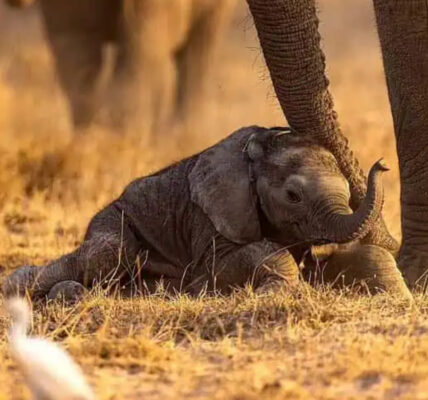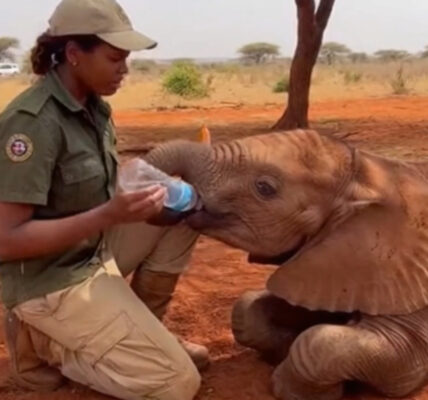For months, the people of Kerala spoke his name with a mixture of awe, concern, and helpless admiration — Arikomban, the giant who walked like a question mark through human settlements, searching for something no one could give him.
Not food.
Not shelter.
Not safety.
But home.
Arikomban was no ordinary elephant. He carried the weight of a disappearing forest on his back, the ache of displacement in his bones, and the memory of a land he once roamed freely — long before humans took more than they gave. His steps were heavy, but his spirit was not. Somewhere inside that colossal body beat a heart that remembered every stream, every tree, every scent of the place he was born.
And that memory would not let him rest.
THE JOURNEY BEGINS
After months of tracking him, of conflict between villagers and the wandering tusker, authorities decided to relocate him. It was meant to protect people — and him. At least, that was the hope.
He was tranquilized, secured, transported, and released deep inside the Periyar Tiger Reserve. A new life. A new beginning. A new chance.
But Arikomban did not understand new.
He understood home.
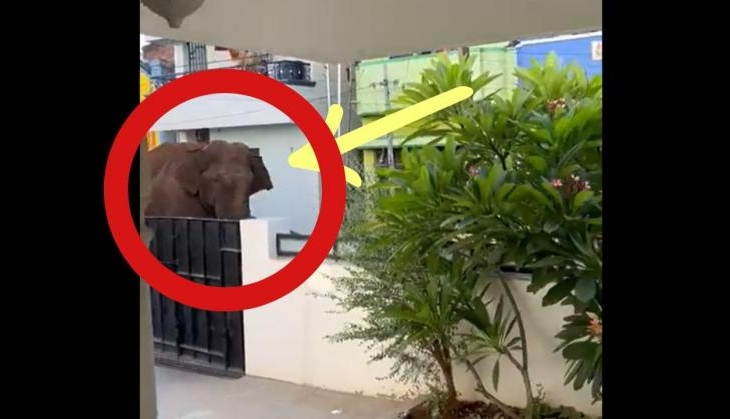
And so, while humans believed they had solved the problem, the elephant simply began walking.
Not aimlessly.
Not destructively.
But with a quiet, unwavering purpose.
He walked through forests, through fields, through borders drawn on maps he could not see — but barriers he felt all the same. He walked past villages, past farms, past the hum of human life. He walked as if something inside him whispered:
Go back.
Your home is waiting.
40 KILOMETERS OF HEARTBREAK
For four long days, Arikomban walked over 40 kilometers, moving steadily toward the land he knew — toward Chinnakanal, the place where his memories still lived.
And as he walked, people filmed him from windows, from doorways, from the safety of balconies. Their voices filled the videos:
“Arikomban has returned.”
“He’s searching again.”
“He won’t stop.”
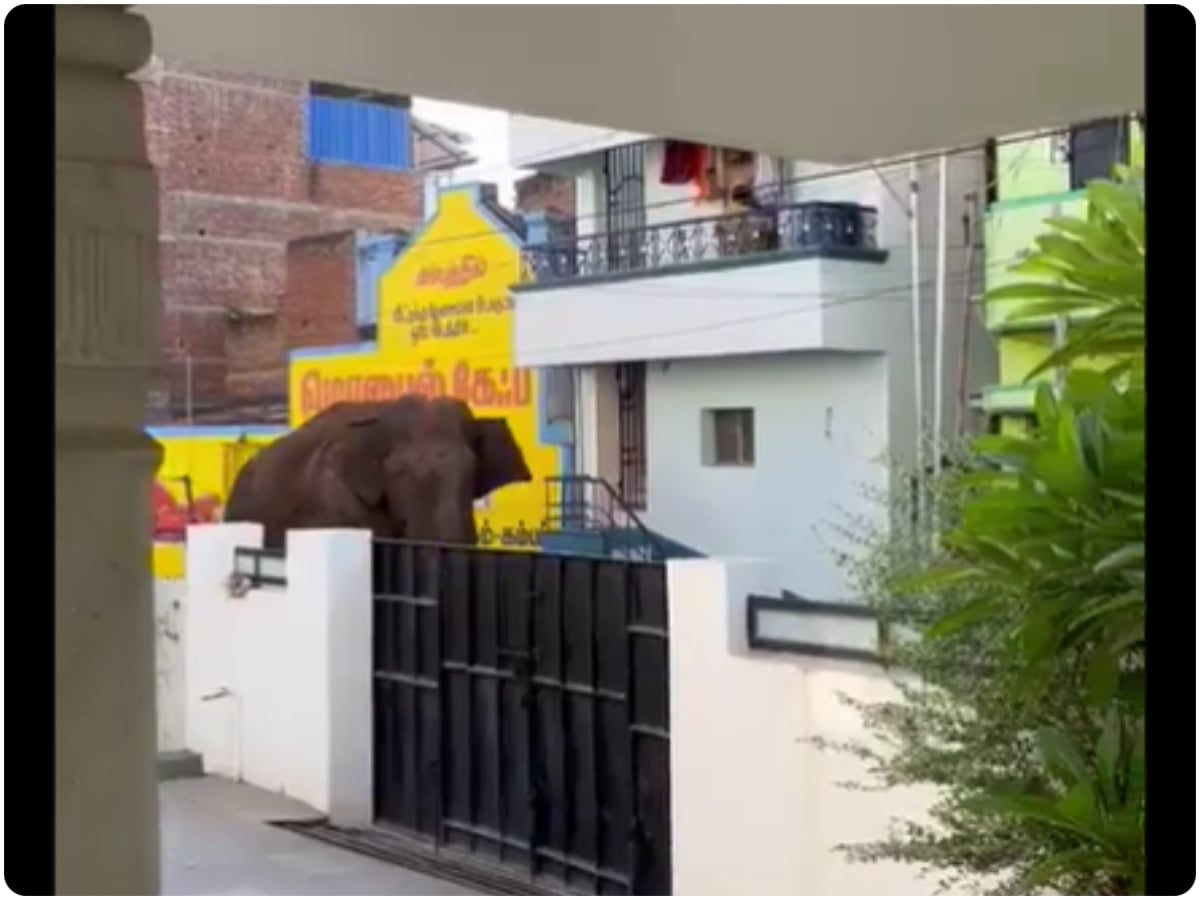
On April 27, IFS officer Susanta Nanda shared a video of Arikomban wandering through the narrow streets of Cumbuum in Tamil Nadu. But this wasn’t a spectacle to him. It wasn’t entertainment. It wasn’t a story to go viral.
It was a tragedy — a quiet one — unfolding in slow motion.
“We have failed this magnificent creature.”
Nanda wrote the words gently, but they struck like lightning.
“We translocated him. But intelligent as they are, elephants have the tendency to return to their home. It’s simply following its inner urge.”
The video showed Arikomban walking slowly, a belt around his neck from the relocation process, his steps steady but tired. People watched, some in fear, some in curiosity, some in guilt.
Because behind the giant elephant was a truth many refused to face:
When we encroach on the forests, the forests don’t disappear — they come knocking at our doors.
MISUNDERSTOOD AND MISNAMED
As the videos spread, so did the labels.
“Rogue elephant.”
“Dangerous.”
“Unpredictable.”
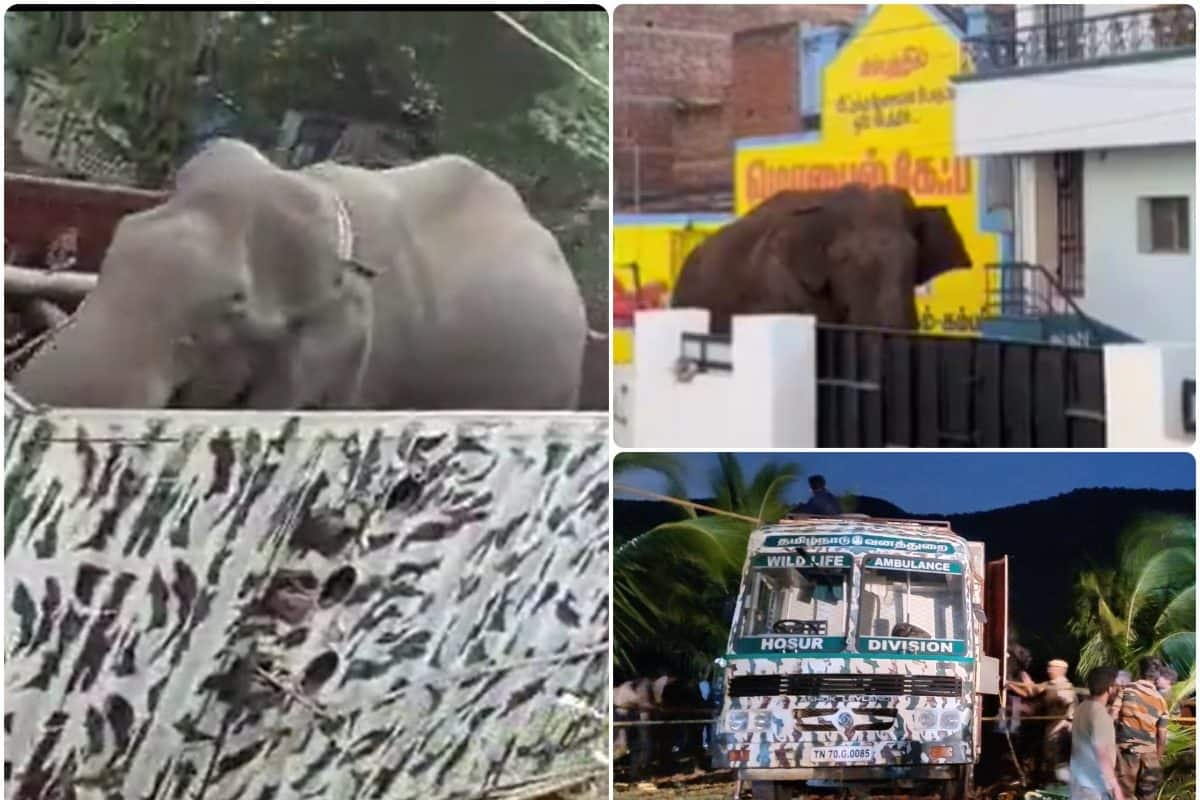
Media headlines painted him as a menace, a threat, a creature breaking into human spaces with wild fury. But those who work with wildlife knew better.
Arikomban was not attacking.
He was not destroying.
He was not raging.
He was searching.
Searching for the forests his ancestors walked.
Searching for the riverbeds his herd once drank from.
Searching for the land where he belonged.
“What pains,” Nanda wrote, “is the hype in media terming it ‘rogue.’ It’s neither savage nor destructive. It’s fighting its battle for survival.”
These words silenced the noise.
Because the real story was not about a dangerous elephant.
It was about a home that no longer existed.
THE PEOPLE SPEAK
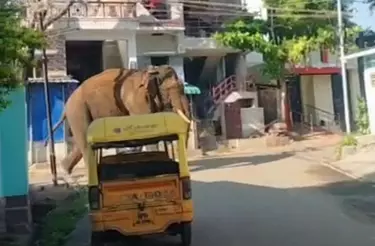
In the comments of Nanda’s posts, ordinary people responded—not with fear, but with clarity.
“Continuous encroachment on forest land,” one wrote.
“This is humanity’s fault,” another said.
“Protect their habitat,” someone pleaded.
“This is why humans and wildlife cannot develop the same land,” another added.
Stories emerged of other elephants — displaced, confused, wandering through human settlements not out of aggression but out of desperation.
Arikomban was not alone.
His struggle was not unique.
He had become a symbol — a quiet reminder that conservation is not just fences and laws and relocations.
It is understanding.
It is humility.
It is coexistence.
And sometimes… it is stepping back so nature can breathe again.
THE CALL OF HOME
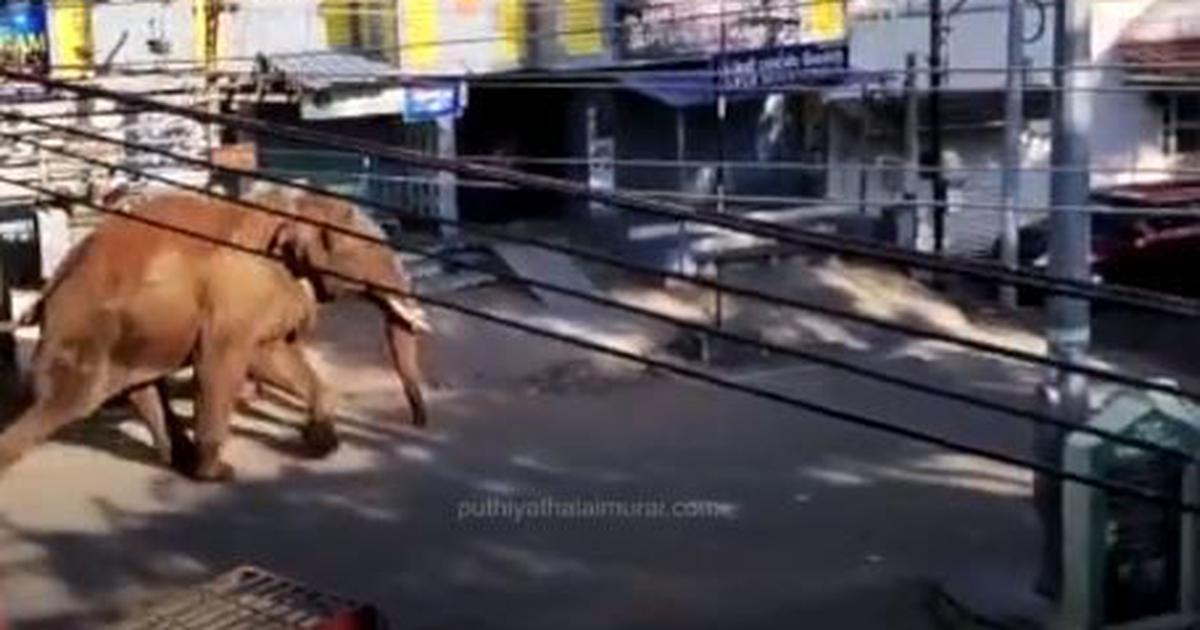
Even after being relocated far into the reserve, far from villages, far from conflict, Arikomban trekked tirelessly toward the place he recognized as his own. It was as if an invisible thread pulled him forward — the memory of a forest that once existed, the echo of a land fading under concrete and cultivation.
He crossed mountains.
He crossed rivers.
He crossed borders humans drew with ink but elephants never agreed to.
He followed the deep, instinctive compass inside his chest.
And even when he reached Cumbuum — lost, exhausted, surrounded by homes and markets and noise — he did not harm anyone.
He simply walked.
As if pleading:
“Let me go home.”
THE LESSON ARIKOMBAN LEAVES BEHIND
His story is not one of conflict, but of contradiction — the eternal clash between development and conservation.
We build.
We expand.
We take more from the land each year.
And the creatures who once lived freely must now navigate a world that no longer has room for them.
But Arikomban teaches us something quietly profound:
You cannot relocate a heart.
You cannot uproot instinct.
You cannot give an animal a new home if its old one still calls to it.
His journey across borders is not a tale of defiance.
It is a tale of longing.
Of memory.
Of loss.
Of hope.
And of an elephant walking through streets not because he wanted to — but because he had nowhere else to go.
A FUTURE STILL UNWRITTEN
Arikomban’s story is still unfolding.
He is still traveling.
Still searching.
Still reminding us that humans and nature cannot occupy the same space without consequences.
But in his footsteps lies a plea — not just for him, but for every wild creature whose home grows smaller by the year:
“Protect what is left, before nothing is.”
And perhaps, someday, Arikomban will stop walking.
Not because he has given up —
but because he has finally found a place where humans step aside and let the wild breathe freely again.
A place he can call home.
At last.

